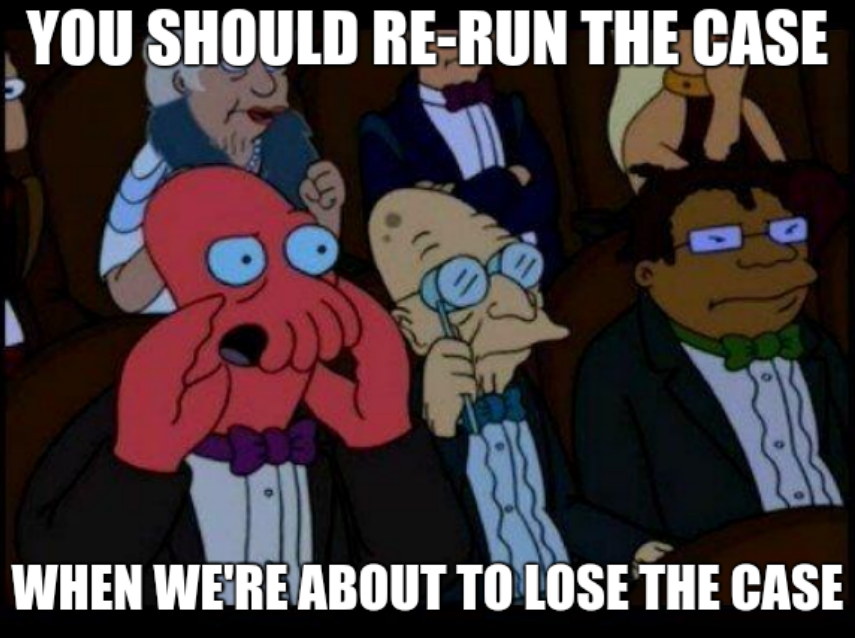

"The EPO's management already clarified, even on Dutch TV, that even if the highest court ruled against it, the orders would be ignored, i.e. disobeyed."Are EPO employees being employed outside the rule of law? Is EPO like a sweatshop in China (except the higher pay)? What can management be allowed to get away with? That question concerns/impacts not only thousands of EPO workers but workers in dozens of international organisations (not only those ILO-AT is responsible for).
We're still trying to digest what we saw in legal documents of Koch. Some of those are public and others we've requested so as to better study the case.
The 129th session of ILO-AT is now over. SUEPO has not said anything in its public site. No updates there (for 3 days now)...
"SUEPO has not said anything in its public site."It is understandable that SUEPO will not want to comment on this case for a number of reasons, but we're not bound by the same rules EPO staff (and staff unions) are subjected to, so let's explain again what we have here.
As far as the referrals of cases to the EPO for "re-running" the internal appeals are concerned, these issues refer to the functioning of the EPO's juridical system in rather general terms, not just to Koch's individual case/s. In cases AT 5-4532 and AT 5-4384 we see an example of that; these concern very serious issues (AT 5-4532: refusal of an employment medical examination in case of occupational disease;AT 5-4384: irregular dismissal -- see these tweets with the parties' latest replies in re AT 5-4532). The complainant could potentially be hit very hard by any flaws of this system.
Unusual in re AT 5-4532 is also the realisation that the EPO attempts to have the fees of its (probably extremely expensive!) lawyers in Geneva (chosen and commissioned by the EPO, of course) to be paid -- at least partly -- by the complainant, alleging that case AT 5-4532 would be an "abusive and unnecessary" procedure (the EPO in its surrejoinder, para. 62) while the complainant receives just a small early retirement pension under protest. Such course of action reveals the EPO management's completely unfounded, but extreme hate against the complainant, a former staff representative with disabilities.
"Unusual in re AT 5-4532 is also the realisation that the EPO attempts to have the fees of its (probably extremely expensive!) lawyers in Geneva (chosen and commissioned by the EPO, of course) to be paid -- at least partly -- by the complainant..."The issue of "re-running" of internal appeals (IAs) by the EPO is particularly noteworthy. The EPO might attempt this in many dozens is not hundreds of cases, impacting a lot of aggrieved (abused) EPO employees. It is particularly serious because the EPO does this (i) after a final decision on them, contrary to the Tribunal's standard Jurisprudence: Judgment number 2906, under 8., Judgments number 994, under 14., or Judgement number 1006, under 2. and (ii) after their lawful referral to the Tribunal and (iii) without awaiting any decision by the Tribunal on them. The EPO withdraws final decisions and "re-runs" IAs of its own volition/initiative.
Worse yet is the fact that no fresh view on the cases and no fairer or more impartial Opinion by the Internal Appeals Committee (IAC) can be expected from the "re-running": The reason for this is that -- to paraphrase what we we wrote earlier -- the IAC's unbalanced composition reproved by the Tribunal in Judgment number 3785, under 7., i.e. participation of volunteers being nominated by the President or selected by lots(!) instead of being nominated to the IAC by the Central Staff Committee (as the former rules on the IAC's composition required) was just "legalised" by the EPO in the meantime, by just a change of the respective rules for the IAC's composition during the Battistelli era.
"...such issues of lawlessness under the EPO's Service Regulations are now being exploited to also neutralise ILO-AT and ILO-AT apparently allows this to happen!"These issues are likely to concern hundreds of cases of EPO staff against their employer, such cases being lawfully pending before the Tribunal. In the unlikely event that the Tribunal deemed this way of acting by the EPO lawful, the EPO would largely benefit from its own turpitude while staff would remain deprived of access to the Tribunal as the only judicial instance under the Service Regulations for an indefinite (in some cases probably meaning an infinite) period of time. In other words, cases could be referred to the Tribunal and back to the EPO like in a ping-pong game, as the EPO was (probably intentionally) introducing "flaws" in the IAs procedure which it subsequently alleged to mend in a "re-run" IAs procedure, with different flaws in different rounds of repetition of the IA. This way a treatment of a case in substance by the Tribunal could be prevented by the EPO. Put another way, a treatment of a case in substance by the Tribunal could be prevented by the EPO, at least a treatment "within a reasonable time", contrary to the complainants' fundamental rights under Article 6 ECHR.
"Re-running" of internal appeals on (the defendant's initiative only) would be an incredible precedent; such issues of lawlessness under the EPO's Service Regulations are now being exploited to also neutralise ILO-AT and ILO-AT apparently allows this to happen! ⬆